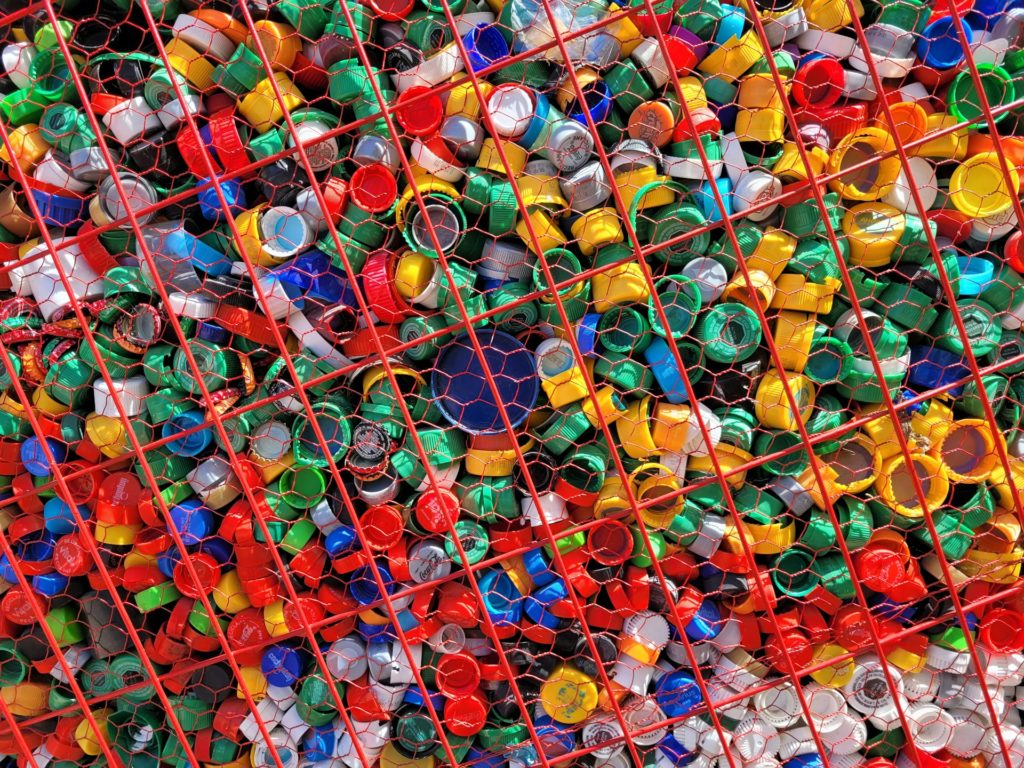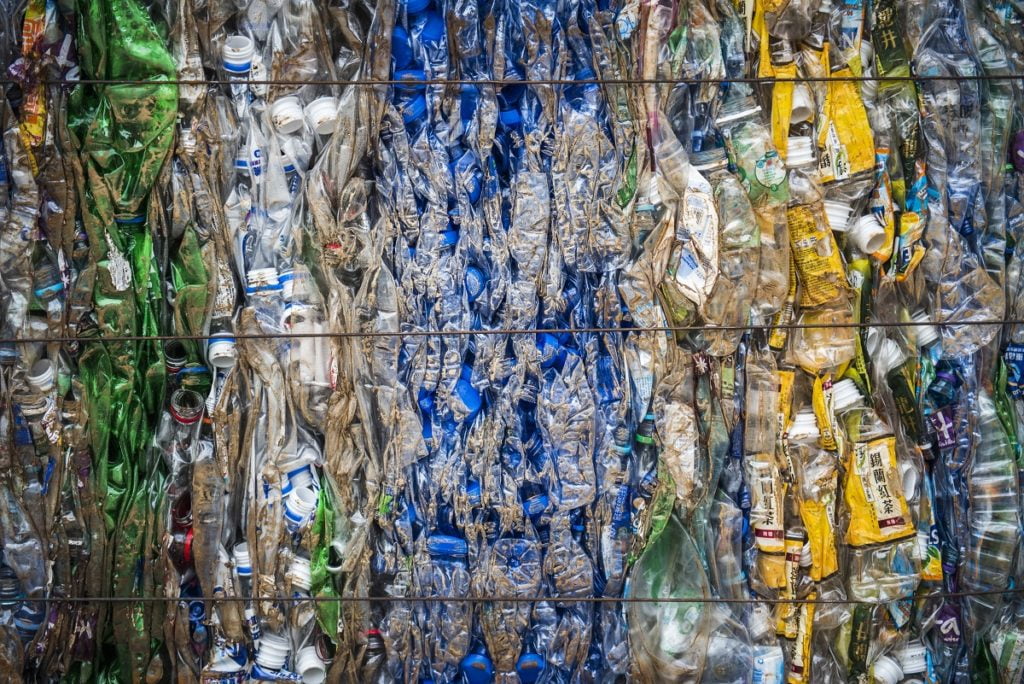In the face of rising environmental concerns and strict regulations, the automotive industry increasingly focuses on sustainable practices throughout its supply chain. Green initiatives extend beyond the production line to encompass other aspects of the industry, including packaging. Sustainable packaging solutions play a crucial role in reducing waste, improving recyclability, and ultimately, minimising the environmental impact associated with automotive manufacturing.
Pulse Plastics, a leading UK-based independent specialist plastic solution provider, is committed to offering innovative reprocessed plastic materials for the development of eco-friendly packaging options in the automotive industry. Our closed-loop plastic solutions help businesses create greener packaging alternatives that align with their sustainability goals while providing economic benefits and promoting a circular economy within the sector.
In this blog, we will explore sustainable packaging solutions in the context of the automotive industry, focusing on the advantages, challenges, and future prospects associated with environmentally friendly options. By presenting the benefits of collaborating with Pulse Plastics, our aim is to inspire automotive manufacturers to embrace sustainable packaging practices and contribute to a greener future.
The first section of the blog will provide an overview of the importance of sustainable packaging in the automotive industry. We will discuss the various environmental, social, and economic factors driving the shift towards eco-friendly packaging solutions and the role of recyclable and reprocessed plastic materials in promoting sustainability.
Following this, we will delve into the best practices for developing and implementing sustainable packaging solutions within the automotive supply chain. This will include guidelines on selecting suitable materials, leveraging advanced technology, and working with experienced partners like Pulse Plastics to establish effective reprocessing and recycling systems.
Next, we will address some of the challenges that automotive manufacturers may face when adopting sustainable packaging strategies. These obstacles range from financial constraints and technical difficulties to regulatory compliance issues and supply chain complexities. Through this discussion, we will explore how Pulse Plastics actively works to help overcome these barriers and support our partners in the quest for sustainable packaging.
Finally, we will discuss the future of sustainable packaging in the automotive industry, examining the emerging trends, innovative technologies, and opportunities that lie ahead. With growing concerns about climate change and resource depletion, we at Pulse Plastics are excited to contribute to the development and adoption of green packaging solutions in the automotive sector, ensuring a more sustainable and eco-conscious industry for years to come.
Join us in our journey towards a greener automotive industry and discover how partnering with Pulse Plastics for your sustainable packaging needs can make a difference.
1. The Importance of Sustainable Packaging in the Automotive Industry
Sustainable packaging is becoming a vital aspect of the automotive industry for numerous reasons. By adopting environmentally friendly packaging solutions, businesses can enjoy several advantages, including:
- Reduced environmental impact: Green packaging uses sustainable or recycled materials, which lowers the amount of waste generated during production and disposal. As a result, manufacturers can minimise their carbon footprint and contribute to a cleaner planet.
- Regulatory compliance: Governments worldwide are implementing stringent regulations to promote eco-friendly practices, including the use of sustainable packaging materials. By adopting green packaging solutions, automotive manufacturers can ensure compliance with these regulations while avoiding fines and negative publicity.
- Enhanced brand reputation: In today’s environmentally conscious market, consumers increasingly seek products that adhere to sustainable principles. By embracing sustainable packaging, automotive manufacturers can demonstrate their commitment to the environment and appeal to a broader client base.
- Cost savings: Green packaging solutions can offer cost savings in the long run, particularly when combined with effective waste management and recycling initiatives. Manufacturers can reduce material usage and waste disposal expenses while reaping the benefits of responsibly sourced materials.
2. Best Practices for Implementing Sustainable Packaging Solutions
Adopting sustainable packaging solutions requires a comprehensive and strategic approach that involves the following best practices:
- Select appropriate materials: Choose packaging materials that are recyclable, biodegradable, or sourced from renewable resources. Examples include reprocessed plastic from Pulse Plastics, FSC-certified cardboard, or bioplastics made from plant-based materials.
- Collaborate with experienced partners: Work closely with specialist plastic solution providers like Pulse Plastics to gain access to innovative reprocessed plastic materials and leverage their expertise in sustainable packaging solutions.
- Opt for minimalism: Keep packaging designs simple and streamlined to minimise waste. This includes using fewer packaging components, limiting the use of ink or adhesives, and favouring space-efficient designs that reduce logistical costs.
- Invest in advanced technology: Leverage cutting-edge technologies to enhance the recyclability and eco-friendliness of automotive packaging solutions. This may involve utilising new materials, designing for disassembly, or adopting innovative production methods that minimise waste.
3. Challenges Faced in Adopting Sustainable Packaging Solutions
Despite the numerous benefits associated with adopting sustainable packaging solutions, automotive manufacturers may encounter some obstacles, including:
- Financial constraints: Investing in sustainable packaging materials and technologies may initially require significant capital outlay. However, spending on eco-friendly practices often translates to long-term cost savings and positive returns on investment.
- Technical difficulties: Developing and implementing sustainable packaging solutions can be complex, necessitating investment in research and development, equipment upgrades, and employee training. Moreover, manufacturers may face challenges in maintaining packaging performance and durability while incorporating sustainable elements.
- Regulatory compliance: Ensuring compliance with evolving environmental regulations can be demanding, especially when operating across different countries or regions. Adopting sustainable packaging solutions helps manufacturers stay ahead of regulatory changes, but may require constant progress monitoring and adaptation.
- Supply chain complexities: Integrating sustainable packaging practices throughout the automotive supply chain necessitates close collaboration and effective communication among various stakeholders. Manufacturers may encounter challenges concerning material sourcing, logistics, and waste management, requiring a committed effort to overcome these obstacles.
4. The Future of Sustainable Packaging in the Automotive Industry
Looking forward, the future of sustainable packaging in the automotive industry seems promising, with several factors driving innovation and adoption:
- Evolving consumer preferences: As awareness about environmental issues grows, customers are increasingly seeking greener products and packaging solutions. Automotive manufacturers that adopt sustainable packaging will benefit from an expanded consumer base, heightened brand loyalty, and a competitive advantage.
- Technological advancements: The development of new materials, technologies, and production methods will continue to provide unprecedented opportunities for sustainable packaging solutions. These advances will enable automotive manufacturers to create innovative, eco-friendly packaging options that meet both their performance and sustainability demands.
- Industry collaboration: Cooperation among automotive manufacturers, suppliers, solution providers, and regulatory bodies will play a significant role in advancing sustainable packaging practices. By working together, stakeholders can drive widespread adoption of green solutions and reshape the automotive industry’s environmental impact.
Conclusion
Sustainable packaging is essential for the future of the automotive industry, offering environmental, social, and economic benefits to businesses that embrace eco-friendly solutions. As a provider of innovative plastics solutions, Pulse Plastics is committed to supporting the automotive sector in its pursuit of sustainability, providing reprocessed plastic materials and expertise to facilitate greener packaging practices.
By adopting sustainable packaging solutions, collaborating with experienced partners like Pulse Plastics, and addressing the challenges associated with going green, automotive manufacturers can enjoy cost savings, enhanced brand reputations, and regulatory compliance, all while playing their part in preserving the environment.
The future of sustainable packaging in the automotive industry looks optimistic, and together, we can create a greener, more sustainable world for generations to come.


